Bi-Tapp is a regulation resource that helps reduce anxiety and helps improve academic performance. When someone becomes overly anxious, they struggle to concentrate and are easily overwhelmed. When a student has access to a resource that they can use “in the moment” of heightened stress and anxiety, many positive things take place, such as:
- Improved academic performance
- Reduction of stress and anxiety
- Improved self-confidence
A Key Component of Improved Academic Outcomes is a Calm Nervous System
The first school in the nation to try Bi-Tapp was Canyon View High School. (CVHS is part of the Iron County School District, Utah) KarriAnn Raddon, School Counselor at CVHS, created the “Tapping to Wellness Program” after her students’ initial success with the tappers. The students quickly learned there was “Help in the Moment” of heightened stress and anxiety. They now had a resource they could use to make them feel calmer, which led to students improving their academic performance.

KarriAnn Raddon
“Our teachers have been able to keep kids in class when they are anxious. We’ve seen test scores go up and we’ve seen some great results in our offices when we are working with kids who are dealing with trauma or any crisis situation.
From November, 2018 through May, 2019, we had a 53% reduction in anxiety in presenting issues students claimed while using the tappers. (1) In our Math 2 class, there was a 13% increase in scores of students using the tappers while testing or doing assignments.”

Mrs. Gifford
Based on the positive results that Canyon View High School reported, Mrs. Gifford, an 8th grade Language Arts teacher at Pine View Middle School, (Washington County School District, Utah), chose to try this resource in her 8th grade Literacy class.
“I knew I needed to find a way to help get the anxiety and stress of the students down before any new learning could take place. These students are reading at a 2nd-3rd grade level. They had so many coping (avoidant) strategies in place that they were not actively engaging in the reading assignments.”
THE INTERVENTION
Mrs. Gifford’s class met every other day. One week, this class met on Monday, Wednesday and Friday. The following week, they met on Tuesday and Thursday. In a single month, they met 10 times. There were 15 students in this class. If each student completed one reading assignment each class period, they would have collectively completed 150 assignments in one month. (15 students x 10 class periods = 150 opportunities to complete an assignment). For the purpose of this study, attendance was set at 100%.
The students were taught how to use the tappers. They learned they could wear the tappers on their wrists, place them in their pockets or in their socks. Students were able to select the settings that they found calming, both rate of speed and rate of intensity of the tapping. To be able to customize the tapping settings is one of this product’s most important features. Mrs. Gifford provided support to the students in setting up the tappers as needed throughout the two-month study.
Total number of assignments completed:
January-2022: No tappers (Bi-Tapp) were used
- Total number of assignments completed as a class: 23 (23 total assignments completed out of 150 opportunities to complete assignments)
February-2022: 1st month the tappers were used
- Total number of assignments completed as a class: 71 (208% increase from the baseline of 23 assignments completed)
March-2022: 2nd month tappers were used
- Total number of assignments completed as a class: 104 (352% increase from the baseline of 23 assignments completed)
Of all the data that came in, the increase in the number of completed assignments was the most significant because you cannot improve if you are not actively engaging in improving. The students improved academic performance when their nervous system was calm.
Number of times a student scored over 75% (equivalent of 100%)
This class had adjusted grading. A 75% or higher score was the equivalent of 100% for each assignment. This class used the Achieve 3000 as the basis of the reading curriculum.
January-2022: No tappers were used
- Total number of assignments achieving 75% or higher: 7
February-2022: 1st month tappers were used
- Total number of assignments achieving 75% or higher: 21 (200% increase from January, 2022)
March-2022: 2nd month tappers were used
- Total number of assignments achieving 75% or higher: 37 (428% increase from January, 2022)
The average assignment score improved 9% as a class in two months.
January-2022: No tappers were used
- Average score for the entire class: 48.8% (75% activity score = 100%)
February-2022: 1st month tappers were used
- Average score for the entire class: 55% (6.2% increase from baseline established in January, 2022)
March-2022: 2nd month tappers were used
- Average score for the entire class: 57.86% (9.06% increase from baseline established in January, 2022)
In addition to the class’s 9.06% activity score improvement, 5 out of the 15 students increased their Lexile level reading by 20-40% from January through March, 2022.
Conclusion:
This study shows that dramatic academic improvement can be made when students have access to a calming resource in the classroom. This SEL resource is simple to use and is appropriate for all ages. At a time when teacher burnout is already at an all time high, we need resources that are simple to use and easy to implement. Bi-Tapp is the resource of choice. The tappers are being used in School Districts across the country with students of all ages.
To learn more about how this product and how it is being used in a school setting, go to bi-tapp.com today.
(1) Subjective Units of Disturbance Scale. SUDS. Wolpe, Joseph (1969) The Practice of Behavior Therapy, New York: Pergamon Press.

